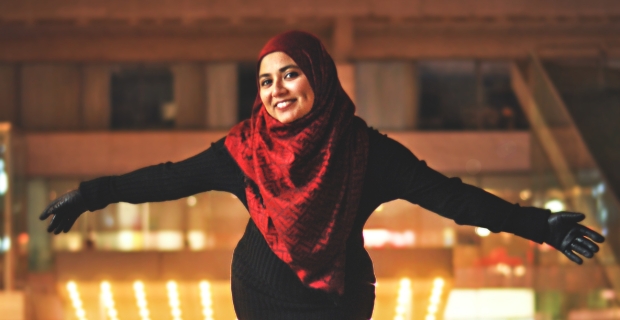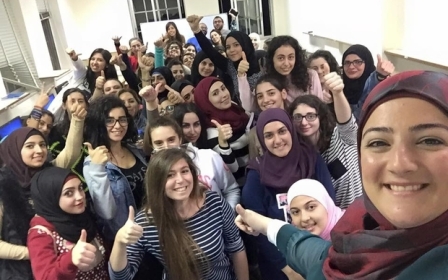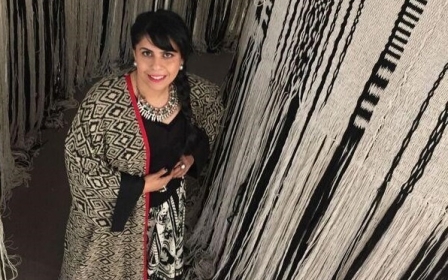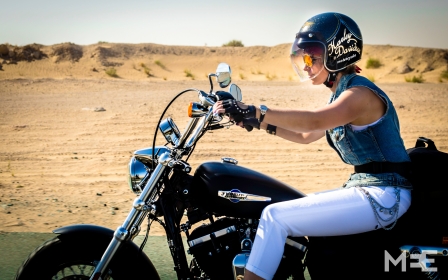Women lead the way against anti-Arab, Islamophobic hostility
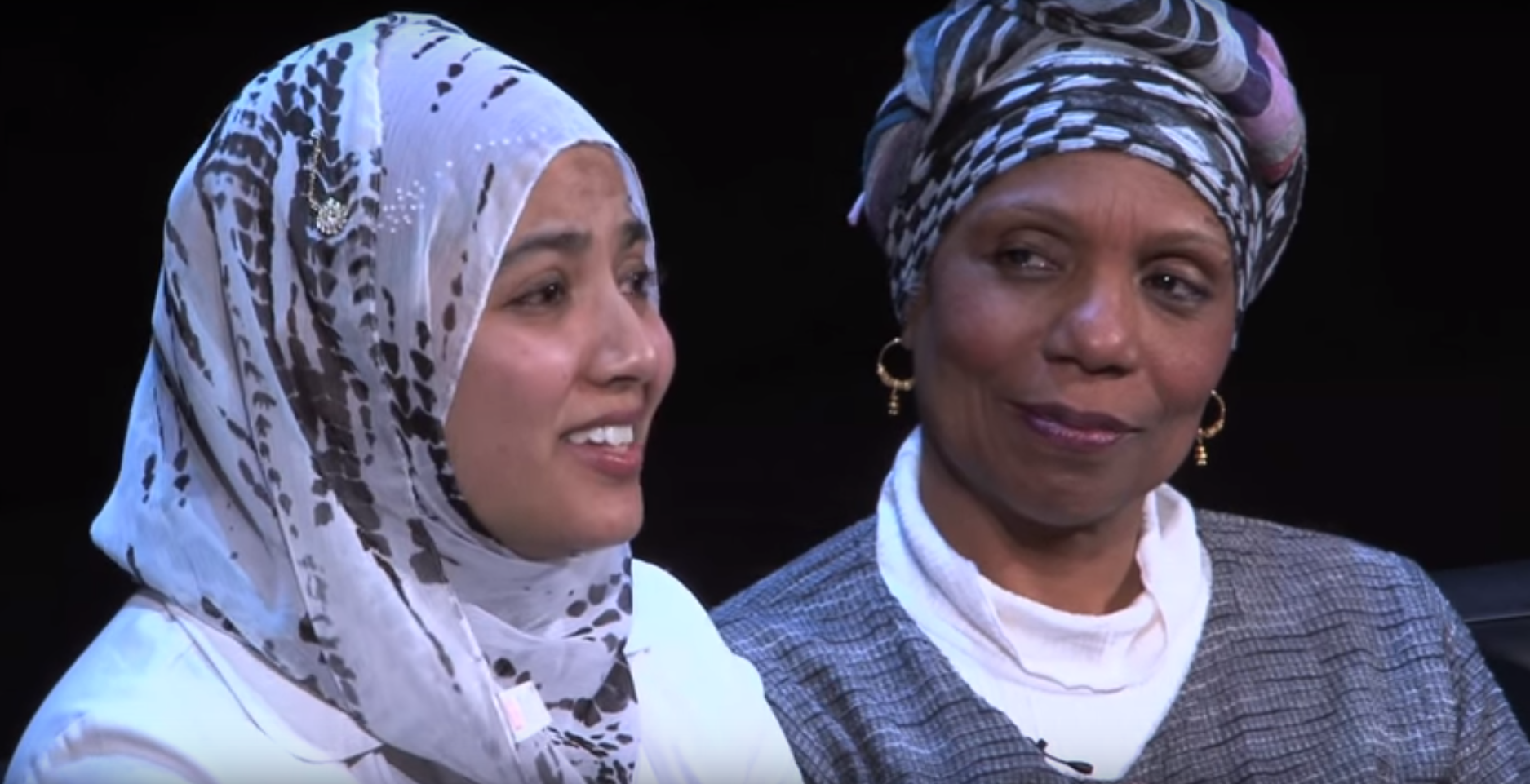
NEW YORK - In the United States, Islamophobic and anti-Arab sentiments have risen to their highest levels since 9/11. Faced with a swell of hate crimes, harassment and hostile political rhetoric, many Muslims and Arabs are resisting the tide. And as more members of these communities mobilise against prejudice, many women are taking leading roles.
One prominent figure in this cause is Linda Sarsour, a Brooklyn-born activist with a growing national following and an electric speaking style. Describing herself as “every Islamophobe’s worst nightmare", Sarsour is committed to “shattering stereotypes” about Arabs and Muslims through her activism and online political talk show. While she is proud of her Palestinian roots and Muslim identity, Sarsour is also a long-time champion for “intersectional activism,” partnering with organisations like Black Lives Matter and Jewish Voice for Peace, in addressing issues including police brutality, the living wage, and racial justice.
In a profile for feminist magazine Refinery29, Sarsour resists the idea that Muslim women should be subdued or treated as second-class members of the faith, saying this is antithetical to Islam. Rather, Sarsour points to the “millions of Muslim women across the world, and particularly in the United States, who are strong, educated, and make a difference in our society”.
In 2001, Sarsour founded the Arab American Association of New York (AAANY), where the mostly female staff offers social services, legal counsel and adult education to the Arab immigrant community of New York City.
Trump fears
Mirna Haidar, a Lebanese activist and lead organiser and advocacy trainer at the association, says members of the Arab community have faced increased discrimination in recent months, but notes that women who wear the hijab (head scarf) or niqab (full face veil), often face the brunt of this aggression.
“Many of the women in our community are afraid of facing physical attacks,” says Haidar, “and lots of them really believe they’re in danger of being deported if Trump wins.”
Aiming to empower these women in the face of these increasing challenges, Haidar heads up Arab Women Activists and Leaders (AWAL) at the AAANY. This group meets weekly for activities ranging from “know your rights” workshops to “healing circles,” where women can share openly about the challenges they face at home and on the street.
The group also conducts self-defence classes designed for women who wear the hijab. “We’re keen on loading our women with the tools they need to stand up for themselves against hate rhetoric, hate crimes, and Islamophobia,” says Haidar.
Post 9/11
For Sahar Ullah, a Floridian of Bangladeshi descent, her experience as an American Muslim woman has changed drastically in the years since 9/11. Ullah recalls growing up among a mostly non-Muslim community in Fort Lauderdale, FL, and says that “being Muslim” was mostly a private concern.
“The main ‘identity issues’ back then,” recalls Ullah, “was that there were so few of us, and without social media the way it is today, we could only connect to one another by gathering in person.”
After the events of September 11 and the ensuing “war on terror,” Ullah gradually felt a new sense of exposure and suspicion.
“We started experiencing surveillance in our mosques, and more attention from the police,” recalls Ullah. “It was like a coming of age moment for our community. We learned then that we couldn’t trust everyone.”
While this came as a shock to many in her mosque, Ullah noted that these issues “were affecting a lot of African American Muslims even before 9/11”.
Ullah, like Haidar, feels that women in the Muslim community face unique challenges. Ullah’s headscarf has attracted verbal assaults on several occasions, but she has also grown weary of the subtler prejudices attached to the hijab. Even when “hijabis” are not being accused of terrorist loyalties, Ullah notes women who “cover” are often depicted as suppressed, weak, and hyper- or hypo-sexualised.
Muslim women speak for themselves
Tired of these reductive portrayals, Ullah and two friends founded the Hijabi Monologues in 2006. Loosely modelled after Eve Ensler’s Vagina Monologues, the production features first-person stories written and performed by Muslim women. “We wanted to give these women a platform, and the freedom to speak for themselves,” says Ullah.
Now in its tenth year, the Hijabi Monologues has been performed in dozens of cities in the US and abroad and has reached thousands online. One of her favourite things about the production, says Ullah, is “it’s not really about the hijab at all”. Ullah laughs as she describes the predictable surprise of the “well-intentioned liberal white audience,” who come seeking a dose of multiculturalism and are treated to much more. The monologues are bold, sincere, and often funny, touching on “normal” issues like relationships and self-esteem as well as larger themes like racial justice and reproductive choices.
Ullah says audiences have been “incredibly responsive” to the production, but admits that this can often bring bittersweet revelations. “Ever since we started, there are a few comments that we receive at every show. There are always people, lots of people, who say they’re shocked at how ‘normal’ the issues are, and how much they relate to us.” Ullah pauses. “That’s kind of sad, isn’t it? But that’s why we’re doing the show.”
Looking ahead, Ullah hopes that this momentum will continue to build, and says she is excited to see an increasing number of Muslims and immigrants engaging in arts and culture in the West. “We have more filmmakers, writers, and photographers than ever,” says Ullah, “and they don’t have to be creating art that’s about being Muslim. They’re just producing good work, being present in the scene. That’s the most important step.”
Ullah notes that some of these efforts are directed inward, including an increased movement among the Muslim community for more gender equality in religious spaces. “That’s really important too, and some people are finally talking about it.”
Targeting inequality
One of the louder voices in this vein is the group Women In Islam, founded in 1992 by Aisha al-Adawiya in reaction to a slew of rapes of Muslim women in Bosnia. At a recent panel discussion hosted at the United Nations, al-Adawiya described Women in Islam as a “human rights organisation, first and foremost”. With this in mind, Women in Islam targets inequality within the Muslim community.
One particular focus of the group is promoting equal access to religious spaces in the United States, where women are often corralled into basements or backrooms. Al-Adawiya, in advocating for change, says she is not a “reformer,” but rather is “working to reclaim the original message of inclusivity preached by Islam.” In her view, cultural suppression of women is a contradiction of the true values of the religion.
While Sarsour, Haidar, Ullah, and al-Adawiya would all be quick to point out that their identities encompass more than their religious, racial, and gender labels, they recognise the political urgency of their work in these arenas.
“We don’t want to just talk about one part of our identity. We want to transcend the boxes people put us in,” says Ullah, “but to do that, we first have to own who we are, our racial, religious and ethnic identities. These things influence our experience, but they don’t define us. They matter, but our message is: there’s more to the story.”
New MEE newsletter: Jerusalem Dispatch
Sign up to get the latest insights and analysis on Israel-Palestine, alongside Turkey Unpacked and other MEE newsletters
Middle East Eye delivers independent and unrivalled coverage and analysis of the Middle East, North Africa and beyond. To learn more about republishing this content and the associated fees, please fill out this form. More about MEE can be found here.


